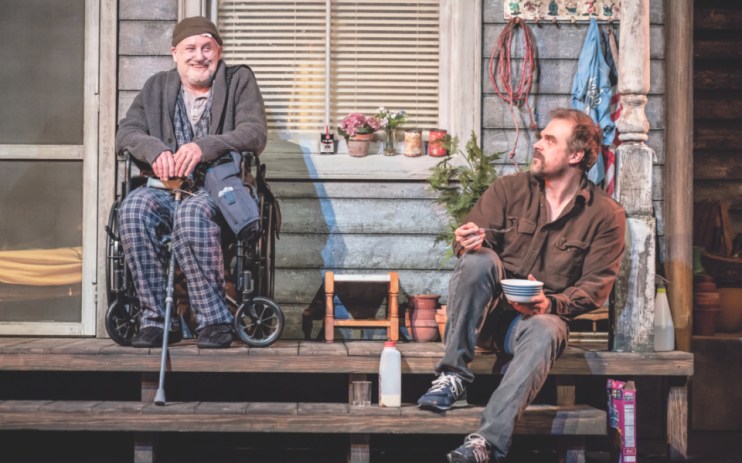Mad House at Ambassadors Theatre: A Smart, misanthropic psychodrama

I can’t quite decide if Mad House is a kind-hearted play with a mean exterior, or a mean play with a token element of kindness. It centres around Michael (David Harbour, fresh from running up that hill in the new Stranger Things), a sweet but troubled man who has spent time in the titular “mad house”.
He’s a full-time carer for his father Daniel, a savage old goat not long for this mortal coil, who revels in torturing his son – the first thing we see him do is toss a freshly-prepared bowl of soup across the room and it’s all downhill from there.
Michael is given some respite by the arrival of a brusque but compassionate end of life nurse, with whom he forges an awkward connection, until his obnoxious siblings Ned and Pam get wind of the situation and descend vulture-like to pick at the scraps.
Theresa Rebeck – a prolific playwright perhaps best known for her 2011 play Seminar starring Alan Rickman – sets the scene for a Sam Shepard-style psychodrama, attempting to tell the story of the nation, the human condition, perhaps even the wider cosmos through the prism of one dysfunctional family.
The problem is Rebeck appears to think very little of the nation, the human condition and the wider cosmos, resulting in a play that’s relentlessly misanthropic.
Michael’s fragility makes him an easy mark for Ned, an oily hedge fund manager, and Pam, the very definition of a Karen, who undermine him with a fervour bordering on the psychotic.
And worst of all is Daniel, a bigoted narcissist clearly inspired by Donald Trump – “fake news!” he sneers when someone points out his bad behaviour – who happily admits emotionally abusing his children and using religion to prevent his now-deceased wife from leaving him. Grim.
There’s plenty of dark comedy mined in the interactions between Michael and Daniel – even the sneering paternal declaration that “I never loved you” prompts a ripple of shocked laughter – but these moments are always underpinned by screaming, existential tragedy. There are moments of revelation in the second half that hint at a path to redemption, but these mostly turn out to be cul de sacs.
That’s not to say this is a bad play – there are smart riffs on death, on emotional inheritance, on unspoken family dynamics, on the strangeness of existence. In the face of all this, Michael’s mental health issues are presented as the most sensible reaction to all the senselessness.
We root for him, this awful family’s sole moral compass, hoping against the odds that he’ll end up on top. But as the play snaps abruptly shut, as if the final act were simply abandoned, even that notion is thrown back at us like an ungratefully-received bowl of soup.
